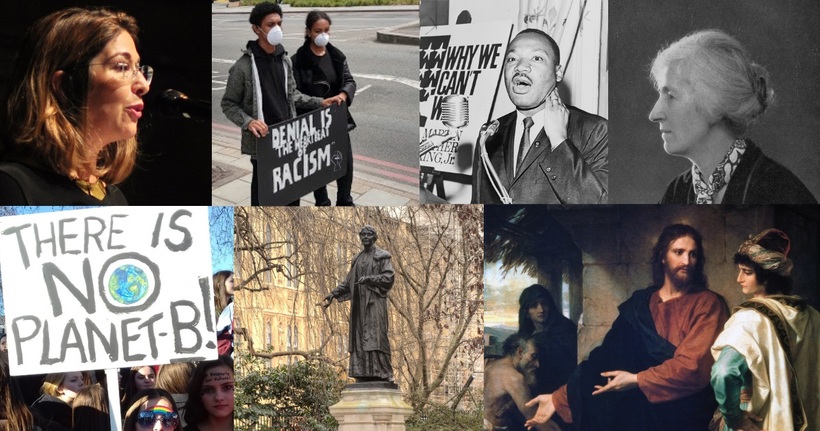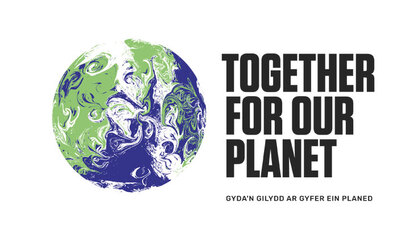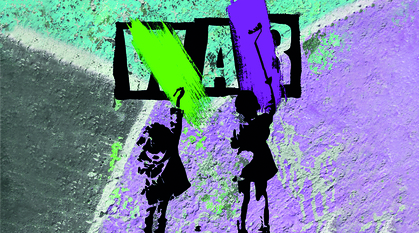9 voices the Department for Education would ban from schools
Ellis Brooks questions new guidance for English schools that silences discussion of capitalism and breaking unjust laws.

Recent Department for Education guidance tells headteachers in England to ensure external organisations, speakers and resources do not take "extremist" stances. These include a stated desire to abolish capitalism and "a failure to condemn illegal activities done in support of their cause". The guidance also bans "victim narratives that are harmful to British society".
In our work, we try to work with teachers and learners to develop empathy and critical thinking about how to build peace. This means opening up to many voices, including those thirsting for justice.
I wonder if the authors of this guidance truly thought through who they would be excluding. Here are 9 voices which this guidance would ban from our classrooms and, at the risk of sounding clickbaity, some of them might surprise you!
1. Jesus
This first century Nazarene's works and sayings enjoy an enduring popularity, but Jesus's views would not have been compatible with government guidance. Not only did Jesus tell his followers that accruing wealth was a barrier to the Kingdom of Heaven (Mark 10:25), but he was ready to take direct action when commerce was out of control, upturning the tables in the Jerusalem Temple.
You could describe Jesus as the founder of the Church, so is the guidance banning speakers from all Christian denominations? This may present a particular challenge for the thousands of church schools in England.
2. The UK Government
Having announced its intention to break international law with the Internal Market Bill in 2020, the UK Government would appear a very unsuitable organisation to talk to children.
This is apparently not the government's only intentional lawbreaking. In 2019, the Court of Appeals said British ministers had ignored whether Saudi airstrikes killed civilians in Yemen, had broken humanitarian law and that arms sales to Saudi Arabia were unlawful. BAE Systems, which provides Saudi Arabia with warplanes, also offer school workshops in England.
There's more if we look back further. Secretary of State for Defence, Ben Wallace, recently said: "Much of the mess we are having to come and clean up today is because of your illegal wars", referring to the previous administration's military action in Afghanistan and Iraq.
3. Kareena Birla, climate striker
If I had to guess, Kareena Birla might be the kind of person that scares the DfE. A committed climate justice campaigner she has, like thousands of other young people, chosen to support school walkouts in despair about climate breakdown. She's also clear that capitalism is at the heart of the problem, writing for Greenpeace, "There will never be ethical consumption underneath capitalism when people and nature are disregarded".
4. Ada Salter
President of the Women's Labour League and the first female mayor in London, Ada was a Quaker dedicated to making housing and the city liveable for the poor. London's greenbelt exists because of her and her fellow campaigners.
But Ada wouldn't be allowed near a school under the new rules. Not only was she a committed socialist, but as a member of the No Conscription Fellowship, Ada supported lawbreaking by conscientious objectors during World War I.
5. Naomi Klein
The author of No Logo and This Changes Everything: Capitalism vs. the climate is one of the most prominent critics of capitalism today, writing "our economic system and our planetary system are now at war."
The huge success of Naomi Klein's books speaks to the appetite for questioning capitalism as well as the urgency of addressing climate breakdown at its roots.
Another author and economic anthropologist, Jason Hickel, has said "Capitalism sells itself as the height of Reason. But there is nothing rational about an economic model that systematically undermines the web of life on which humanity itself depends."
These are the most important discussions of our age, perhaps in human history. But they're not for the classroom, it seems.
6. Martin Luther King
The famous civil rights campaigner will be the subject of many a lesson in Black History Month, but neither Dr King nor any of his colleagues from the Southern Christian Leadership Conference would be allowed into the classroom, according to the new rules. From jail, King wrote "There are two types of laws: just and unjust", and he was ready to break the latter.
Exercised by poverty as much as civil and political oppression, MLK also wrote, "Today capitalism has out-lived its usefulness."
King's is another voice who would have been denied access to many US schools in his own too-short lifetime, but it's disheartening that it would be the case in 2020 England.
7. Quakers in Britain
Headteachers might not be able to allow Quakers in Britain into schools if they follow the DfE's dictat.
First, we definitely think capitalism is an issue. Global capitalism is based on exploiting people and the earth, and is causing climate breakdown. While views differ on whether we should reform capitalism or abolish it, no serious thinkers on climate doubt the need to challenge the system in its current form.
Our New Economy work seeks a system that values people and the planet above profit. Quaker communities around Britain are trying to put alternative ideas into practice.
Quakers also don't condemn nonviolent activists who have broken the law while working for our goals of peace and justice. Quakers have written, "Respect the laws of the state but let your first loyalty be to God's purposes. If you feel impelled by strong conviction to break the law, search your conscience deeply. Ask your meeting for the prayerful support which will give you strength as a right way becomes clear."
8. The suffragettes
Emmeline and Christabel Pankhurst share a plinth near the Houses of Parliament, but the DfE would not countenance their presence in schools. Following the motto 'Deeds not words' they, and many members of the Women's Social and Political Union, engaged in property damage and law-breaking, resulting in imprisonment and hunger strikes.
Britain's suffragettes may seem historically remote, but what about their successors fighting for gender equality and resisting gender-based violence today?
9. Anti-racist educators
Those educating against oppression today probably have the most reason to question this guidance, which seems to impose a political test on the discussion of social justice. The Coalition of Anti-Racist Educators (CARE) and Black Educators Alliance (BEA) have begun legal action to challenge the guidance as a breach of the Human Rights Act.
They argue that the guidance "is a serious attack on civil liberties, which seeks to erase identities and silence discussions that are integral to the development and wellbeing of students".
If the Department for Education wants to safeguard young people, it should be ready to support them to address the threats of climate breakdown and inequality. If it's serious about balance then the best way to achieve this is through allowing different voices and perspectives to be explored. Young people deserve the chance to weigh up different points of view, and develop their own moral compass – something so needed in our fractured times.


